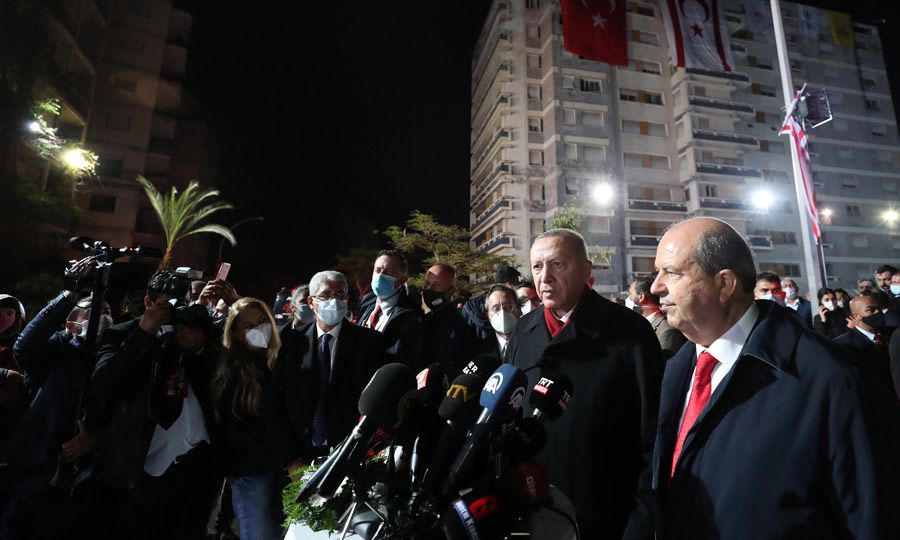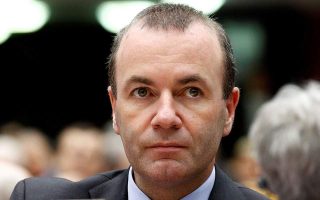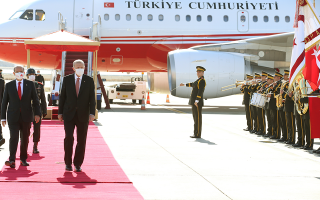Cyprus talks doubtful after Erdogan visit

The prospects for a solution to the Cyprus problem appear bleaker after Turkish President Recep Tayyip Erdogan reiterated the call for the resumption of negotiations for a two-state deal, scrapping the bizonal communal federation that had been the basis of all negotiations since 1977 within the context of the United Nations framework.
He made his remarks with Turkish-Cypriot leader Ersin Tatar by his side, during his visit to the city of Varosha in Turkish-occupied northern Cyprus, which Turkish authorities partially opened in violation of UN resolutions and European Council conclusions.
Erdogan said Ankara would continue “resolutely exploring and drilling in the Eastern Mediterranean until a fair solution is found within the framework we set.” He stressed that “today in Cyprus there are two different peoples, two democratic regimes and two different states.”
“As Tatar has stated, a solution with two states on the basis of sovereign equality must now be negotiated,” he added.
His visit and remarks were decried in Nicosia, Athens, Berlin and Brussels, with EU High Representative Josep Borrell expressing his disapproval.
German Foreign Ministry spokesman Christopher Burger said Berlin remains committed to the UN resolutions and UN-sponsored peace process, for a bizonal, bicommunal solution. He added that a solution to the disputed issues in the Eastern Mediterranean can only be achieved through dialogue between all parties and for this to occur Turkey must refrain from “unilateral provocations.”
Earlier, Turkish Foreign Ministry spokesman Hami Aksoy slammed European criticism, saying UN Security Council resolutions do not outweigh the will of the people. “In the last elections, the Turkish-Cypriot people clearly expressed their will to negotiate the solution model of the two states. Everyone, including the EU, must respect this will,” he said.





